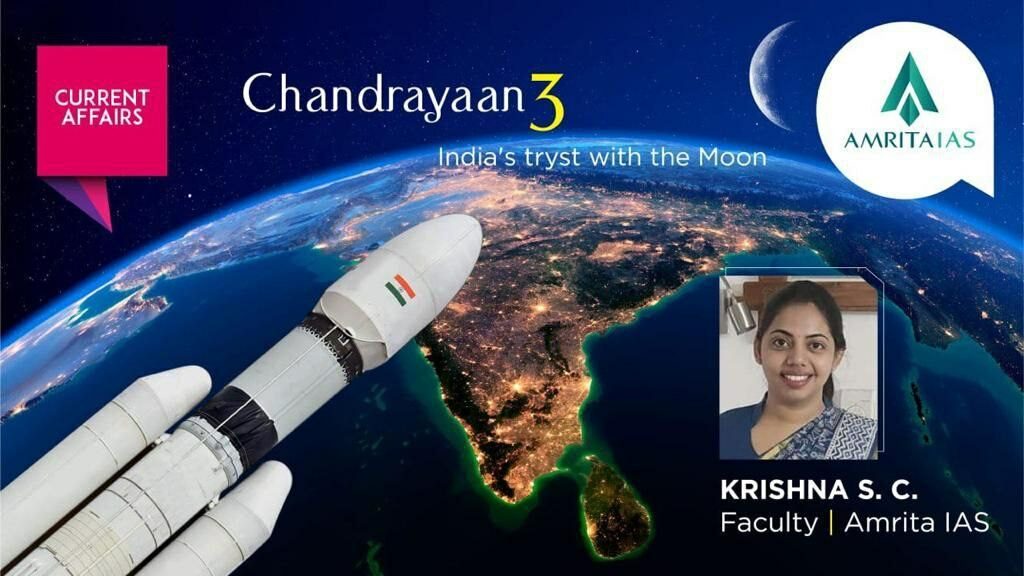- How many seats are available in a year after qualifying CS examination, and how many IAS/IPS posts will be allotted?
Although the number of vacancies expected is around 980, it can vary throughout the year. Usually, the expected seats will be divided among the reserved categories, i.e., 34 vacancies will be reserved for the PH category, 14 vacancies will be reserved for LDCP, 13 vacancies for HI, and seven vacancies for B/LV.
As per the rules, the government can recruit only 180 IAS officers and 200 IPS officers every year through the Civil Services Examination (CSE).
- How are services being allotted for UPSC?
Every year lakhs of aspirants appear for the exam, of which only a few hundred are selected and appointed to the services. These services are allocated to the officers based on their ranks, reserved category, and the vacancies available in that particular year.
- How many years should one prepare for the Civil Service exam?
A dedicated soul shall keep aside only a year for the preparation, which is enough and more. After all, a question like this seems to be a personal one because the time taken to complete a certain task depends on one’s caliber. Less surprisingly, there have been candidates who would have done it in 6 months. So, in general, it solely depends on the aspirants.
- Is English mandatory/ High Command in the language required?
The English language becomes compulsory when it comes to the qualifying paper in the Mains Examination ‘Paper B’ that too, at only the matriculation level. This is because you must know at least the functional level of the English language so that it can help you connect with the people and other officials if you are posted in any remote part of the country. The fact is that IAS is an All-India service, and after your selection, you can be posted in any part of the country. Although Hindi is the largest spoken language in the country, it is not a very widely spread language to date, and for that matter, neither is any other language. On the other hand, despite being spoken by a very small portion of the Indian population, English is the most thinly spread language in the country. So, in that context and at that level, only UPSC likes to see your proficiency in English.
- Can the Exam be written in Malayalam or any Regional Language?
You can appear for the civil service exam in any regional language mentioned in the 8th schedule of the Indian Constitution. It came into existence in the year 2013, as per the statement made by Minister for Personnel and Training V. Narayanasamy in parliament. And at the same time, you can choose the same language to attend the UPSC interview.
- Is it required to prepare for 12-14 hours a day?
The UPSC civil services exam is considered one of the country’s toughest exams. Because of this, many people recommend studying for about 15 hours per day during the exam preparation time. Many aspirants wonder how many hours of study are required to clear this demanding exam. Some aspirants claim to study for 15-16 hours daily while preparing for the UPSC exam. And there are others who clear the exam by studying just for 6-7 hours a day.
Thus, there is no perfect answer to this question, and the candidates should decide the number of hours of studies per day considering their capabilities and requirements. During the initial days of their preparation, some candidates start by studying for more than 12 hours a day. They continue this for about a week, maybe 10 days. After this time, they find it tiring to continue with this routine, and gradually, the intensity of their studies wanes off along with their initial enthusiasm. This is because it is physically very demanding to sit for hours on an end and study. Remember that the exam is long drawn, and this process shall be enjoyed.
- Why is the Syllabus So Vast?
UPSC CSE exam is one of the most coveted exams conducted in India. It is even said that it is among the world’s hardest due to its uncertainty and oceanic syllabus. It is certainly true that the competition is fierce and the syllabus is vast, so candidates are supposed to enhance their knowledge and develop administrative traits. What makes this particular exam different from other competitive exams is the diversity that it provides in its syllabus since it demands more determination and long study hours. Remember, the role of an administrator is not just limited to a particular field; thus, they require basic knowledge in almost every subject.
- Why is it called one of the toughest examinations in the World?
There are many myths revolving around the UPSC Civil Services Exam. One among them is that the civil services exam is the toughest of all, although that is not true. Many aspirants crack this exam each year, and some clear it on their first attempt. It all depends on how you prepare and avoid mistakes during your preparation. Moreover, with the right guidance and preparation, one can crack this examination very easily. A bulky syllabus, rigid pattern, fewer vacancies compared to the candidates that appear for this exam, etc., makes it a demanding one, but it is not at all a hard nut to crack. And obviously when 100,000 candidates compete for over 1000 posts, it can be hard but, again, not impossible to crack.
- Why are many aspirants not clearing it on the first attempt?
Lakhs of aspirants take up the UPSC civil services exams in our country. Some clear the prelims and do not cross over the mains bridge. A few leap over the mains but stumble at the UPSC board interview.
While giving your first attempt, several reasons may lead you to get stuck and pull away from getting into the final rank list. One among them is that they fail to understand the exam and the UPSC syllabus. Sometimes they get misguided and get diverted from the actual mode of preparation. Following the correct booklist to cover the particular subjects is also an important factor in scoring, or it will be like covering everything under the sun and failing at the attempt.
There can be several reasons for not getting it on your first strike, but there have been candidates who have done it on their first attempt.
- Why the majority of the aspirants are failing?
The reasons are very clear when it comes to why many of the aspirants fail to clear. It is a much attention-seeking part when it comes to preparation so that aspirants can be careful and not try to repeat the mistakes.
Let us label them under short subheadings and the following includes:
- Fear
The UPSC exam is known for its vast syllabus to cover and diverse subjects to learn, and this competition makes the aspirants get bewildered and burdened with fear. Their fear clouds their focus, and makes errors in judgment. Fear of failure stifles them into inaction. Even if written exams are cleared, people fear facing the board interview.
- Overconfidence
Some academically brilliant students also fail to crack the UPSC civil services. For example, an engineering student can ignore CSAT preparation for UPSC thinking he/she knows it all, and pays the price for being arrogant. Remember that knowledge is never constant and can always be added upon.
- Lack of strategy in the IAS preparation
Too many aspirants jump onto the CIVIL SERVICE bandwagon without any plan or idea of how tough and taxing its preparation can be. They study without a proper strategy for the subjects. Clearing the IAS exams requires a proper plan, including USPC-specific preparation for all the subjects. A lack of direction in the approach would mean not being able to complete the syllabus on time.
- Lack of revision
UPSC civil services preparation takes up almost a year. It is impossible to remember everything if you do not revise periodically.
- Poor grip over the UPSC syllabus
The UPSC sticks to the syllabus, and even the current affairs questions are related to it, so it is much necessary to know the whole exam and syllabus better.
- Panic during the exams
Exam fear is a genuine problem, as even the most prepared candidates falter because of the perceived enormity of the situation. Panic fogs your mind, and you end up unable to think and recall, thus faring badly in the exams.
- Answer the questions asked
A common mistake made by the aspirants is not to read the question properly and end up answering unnecessary things and ignoring what is really asked.
- Writing practice/mock tests
Some candidates fail because they do not practice answering question papers. This is a fatal mistake as you will never learn to time your answers and not know the pattern of the question papers.
- Reading from too many sources
Gather all the material to study first and then stick to them. Except for current affairs, avoid going on collecting material for other subjects. This only confuses and frustrates you.
- Lack of time management and study plan
Many candidates fail because they do not follow good time management techniques.
- Choosing the wrong optional subject
This is also a cause of failure in the IAS mains. Most candidates, for different reasons, choose the optional subjects ill-suited to their interests and knowledge. This leads to disastrous results in the exams ultimately.
- Attitude
Last but not least, many aspirants fail to make it because of their reluctance to give it all. Cracking the UPSC civil services requires dedicated preparation throughout. This is not for the faint-hearted or languid ones.
- Out of the Prelims & Mains, which one is tougher?
UPSC Prelims and Mains overlap with each other in terms of topics. The major difference is that Mains requires a lot of analytical thinking and writing skills, while prelims is only bound to be on MCQ type of questions. The prelims and mains must be attempted within the limited time given. However, comparatively, regarding time management, the mains exam requires more practice since it includes answer writing rather than choosing from multiple choice.
- Is it possible to do self Preparation without coaching? Is Coaching Mandatory?
A common question UPSC aspirants ask before the exam preparation is, “Should I join a coaching class or study by myself for the exam?” There is no point pondering over this for days and wasting time that you could use for studying. There is no rule that you must attend coaching classes to clear the exam. If you have certain ‘tools’ you can crack the mother of all exams in the country. All it takes is a proper strategy and dedication on your part. There are several benefits when it comes to self-preparation, such as:
- You know your strengths and weaknesses and can set up your own pace of study.
- Go for self-study if you are the disciplined type. Clearing the UPSC exam requires single-minded focus and hard work. If you have these qualities, you don’t need any external coaching.
- The self-study might also work out for you if you are a working professional. Read how to crack the exam while working.
- You have all the material you need from the internet.
However, coaching offers certain advantages. Only the immensely disciplined can pull it off. For other ‘mortals’, attending coaching can certainly boost your preparation.
- You will have access to experts’ lectures and opinions, which go a long way in shaping your knowledge.
- Your current affairs preparation for the exam will benefit from taking guidance from the experts.
- How should one prepare for UPSC CIVIL SERVICE EXAM if planning to start from College 1st year?
The eligibility for the exam is 21 years and graduation in any subject. You should also take note that final-year students can apply for Prelims. Many candidates miss this early opportunity and have come into the UPSC Civil Service Exam preparation field lately. This is clearly reflected in the average age of candidates entering the final UPSC CSE rank list, which is 28 years.
If you start early, that will give you a lot many advantages. And we have no doubts that aspirants who start early can clear the exam without compromising the thrill and happiness of campus life. But for that, the right strategy and study plan are necessary.
Unlike many other aspirants who can dedicate a full year to UPSC preparation, those who prepare parallel while in college will have time constraints. So what is more important is your ability to prioritize things. Do only what is extremely important.
Once you decide on IAS/IPS as your career goal, buy the most necessary books for UPSC CSE preparation. To begin with, below are the books you should start with.
- NCERT Books – Hard copy or soft copy
- Polity – by Laxmikanth
- Economics – by Ramesh Singh
- History – By Bipan Chandra
Also, ensure you do not compromise your newspaper reading, irrespective of the time constraints. It can be either The Hindu or Indian Express for quality articles. Give importance to editorials and op-ed articles.
In UPSC CSE Mains, the speed of writing is very important. Aspirants just out of college will have a big advantage here as they are not out of touch with pen and paper compared to working professionals. Take maximum leverage on this. Participate in essay competitions in your college. Write letters to editors of famous newspapers.
When it comes to peer groups at college, take advantage of the long conversations and debates that are all part of college life. Believe us; peer learning is one of the most important aspects which help most of the aspirants in the exam. Build groups right from the college.
You can also try to finish the optional subject during semester breaks during college so that they can concentrate on General Studies (GS) and current affairs after graduation.
If time permits, either finish the optional subject or the entire set of NCERTs from class 6-12. Try to refer to the UPSC toppers interviews for the latest tips from toppers. This would keep you motivated.
- Is it required to study everything under the Sun?
Usually, anybody who tries to approach this particular exam normally carries a myth about this exam, i.e.to cover everything under the sun or a misunderstanding that he/she holds this position should have deep knowledge about every topic. Well, that is something impossible, and to promise that this fact is true to the core, even the UPSC has given a structured syllabus for prelims, mains, and the final personality test basis on which the question will be asked.
- What are the two basic things one aspirant should not ignore?
The two basic things that one aspirant should never ignore is to understand the syllabus of the exam thoroughly and to get to know about the exam pattern by going through the previous year’s question papers for both the prelims and the mains.
- How to keep the Momentum Positive?
Investing a year, completely, or along with a profession to crack the Civil service examination carried out through a year-long process isn’t that easy. After all, the ultimate result matters for others rather than the challenges one might face throughout the journey.
Try to maintain a positive momentum by following some of the tips given below:
- Cut yourself off from negative people. Do not be surrounded by people, whether friends or relatives, who are constantly telling you how difficult this exam is. Once you cut off from them, you will be in a more positive frame of mind.
- Start doing one physical activity for at least an hour daily during your preparation. Exercise and physical activity keep physical fitness intact, and your mind becomes positive.
- Have a plan in place. It is only when you do not have a plan for the month, the day, or even the hour that you worry. Because your course is incomplete, preparation is not in the right direction, etc., your mind finds it better to indulge in negative thoughts. But when you have a proper plan as to what you are going to study today, then even when you have negative thoughts, you tend to bounce back and start studying.
- Try to develop some minor hobbies that don’t interfere with your preparation and, at the same time, can save you when you get exhausted while preparing.
- Talk to a friend or your sibling whenever you feel negative. Sharing helps you to come out of the spiral nature of these thoughts.
- Keep in mind the other options as well. If you are one of those who worry because you have not thought of any other option and feel that if you do not clear this exam, you will be jobless, keep other options open as well. This will help you feel more relaxed and concentrated.
- Your preparation is not a waste of time. You would possibly have learnt much more than you have till now in your life, so you must think of it as an investment in your own self.
- Do not confine yourself in a small room for long study hours. Allow yourself an occasional movie or outing once you have completed the required portion of the week’s syllabus.
- Watch some motivational videos.
- Do not overindulge on social media; if possible, keep out.
So, in general, the idea is to do everything you can do to keep yourself motivated and positive so that you can give your best to the Exam.
- What are all the qualities one aspirant should have?
One of the benefits that this exam has is that while you embark on this journey, you will witness certain changes in your personality as time goes by. The exam is not just about being fiercely competitive, reading, and learning; it is often a path of self-discovery.
At the same time, it is inevitable to hold up certain qualities while wearing the tagline of a UPSC aspirant. Some of them include the following:
Honesty
You are preparing for UPSC Civil Services Exam, and you know the path is tough and difficult. If you are not comfortable or not preparing out of your own will and interest, it will not do you any good. So, try to be honest with yourself. If you are not honest with yourself, you will not be able to crack this exam, as every test will let you see your weakness, and you may ignore this warning, eventually knocking you down.
Again, When you become an officer, this is one quality that you cannot ignore if you want to serve the people and solve their problems.
Inquisitiveness In the current trend of analytical questions in the UPSC exam, you must be inquisitive. Being inquisitive means being ready to dig deeper about any topic of relevance you come across during your preparation.
Grasping power
You should develop a good grasping power. Whatever subject you are reading, you should be able to understand the topics quickly. At the same time, you should also know how to utilize that information during the examination.
Read and make it a habit.
A UPSC aspirant should love reading regardless of the subject. There are plenty of novels, magazines, and content on the internet. Keep some time to just read about related things but not the standard books. Read a lot. It will help you give a different perspective, develop your analytical ability, improve your language and provide you with enough content to tackle GS and Essay Paper.
Persistence
UPSC preparation is one of the hardest journeys, and you are brave to take this risk. Even if you want to crack it on your first attempt, you need over a year to prepare and another year to complete the examination process (Prelims, Mains, and Interview).
If you qualify for prelims and cannot clear mains or the other way round or crack the interview, you will have to reappear again for this exam from scratch, i.e., prelims. So you should be persistent and able to continue with IAS exam preparation for 3 – 5 years without losing your commitment to the exam.
Writing Ability
You know the final hurdle is the Mains exam, and it is a subjective exam. You have to write your answer to convey your understanding of the questions. So developing good writing skill is synonymous with your exam success, and writing skill is not something people are born with. You can master the skill with daily practice.
Dedication If you want to win the marathon race, you should practice regularly to win on D-day. The same applies to this exam preparation; it is also like a marathon race (Prelims, Mains, and Interviews). To clear this exam, you should prepare sincerely on a daily basis to succeed. Success never comes easily; you have to work for it.
Communication Skill
This is again an important trait that will help you as an officer and in general in any walks of life. If you have good communication skills, you can reach heights. Pay attention to this; if you have trouble speaking in front of people and need to improve at communicating your ideas, work on it. After all, if you pass the mains and your communication skill becomes a bottleneck in your success, you will regret the most.
Self Belief
First, Believe in yourself before the world believes you. If you think you can, you can!
- What should be the probable Strategy for Prelims?
A well-curated strategy can help the aspirants in revising and remembering the facts until the exam day. Every student has their own approach to preparing, but only the most effective plan will help an aspirant sail through the exam. The most important aspect of the preparation is dedication and consistency. Hence, stick to the plans no matter what.
Newspaper reading
Current affairs is the most important aspect of the prelims exam. Newspapers help to cover these topics extensively. However, reading a newspaper can consume a lot of time. Hence selective reading is recommended at this stage. It is advisable not to spend more than one hour on newspaper reading. Pay extra attention to the national, international, science and technology, and editorial sections.
Current affairs revision
Besides newspapers and magazines, online portals are important sources for preparing current affairs. For UPSC prelims, it is advisable to read current affairs of the past 24 months. So candidates should revise their current affairs notes, if prepared, or refer to notes available online for two hours every day.
Refer the YouTube channel of Amrita IAS to access Daily Current Affairs and tutorial videos.
Static subjects revision approach
The static syllabus is the only predictable thing about this exam. But the syllabus is extensive, and a consolidated approach should be followed to revise each subject. With four months at disposal, candidates should revise all the subjects one month before exams. Constructing a daily, weekly, and monthly plan to cover all the subjects is important.
Mock tests and previous year’s papers
Solving mock papers is one of the finest ways to shed exam fear and understand the prelims exam pattern. Reading and learning are part of the UPSC exam preparation, and solving questions based on those topics is another.
Hence, it is advisable for students to solve as many mock tests as possible before the exam. It may be possible to not score well in the initial few days, but the score will improve eventually. Candidates should also refer to previous years’ papers to understand the exam pattern. It can help understand the questions that can be framed from a particular topic.
Refer the Telegram channel of Amrita IAS to access Previous Years’ Question Papers and Exclusive Classroom Lecture Notes.
- What should be the probable Strategy for Mains?
UPSC CSE Prelims is the first elimination round of the Civil Services Examination. After you have qualified for the first hurdle of this coveted exam, the most crucial phase of your preparation journey is for UPSC Mains. Since UPSC CSE Prelims is qualifying in nature, your score in that round will not determine your final selection. It is the Mains exam whose score will be extremely crucial in determining your selection and rank.
- Make A Detailed Study Plan For UPSC Mains Strategy
Once you have relaxed completely, come out of that zone, and devise a detailed study plan for your mains preparation. As you might already know, UPSC Mains consists of 9 theory papers, of which two are qualifying language papers, 2 are your optional subject papers, 1 is an essay paper, and the other four are general studies papers. So, you should have a clear-cut strategy on how to go about revising each of the subjects and preparing the ones you have not even started yet.
Try to schedule the time for each paper since you will be given around 2 – 3 months to revise the whole mains syllabus. And here is what you can do:
- Have a monthly goal, weekly goal, and daily goal. Stick to that and ensure that you complete each goal. Make small targets so that they seem achievable.
- Even if your preparation gets disturbed for 1-2 days, do not wreck the whole plan; divide the portions you have missed across the week.
- Always keep 2 hours for revising what you have read daily. Also, keep the weekends free for answer writing practice and revising what you have learned in the week.
- Enhance Your Answer Writing Practice
Since the Mains paper is descriptive in nature, it is important that you give due time to answer writing in your UPSC Mains Preparation strategy. Try to summarize whatever you read in your own words at the end of the day. Dedicate an hour each day to practice answer writing. Get your answers evaluated by your mentors or seniors to get a fair idea of where you stand. Do not fret about writing bad answers in the beginning. Practice does make one perfect; hence practice answer writing as much as you can.
- Give Regular Mock Tests.
Mock tests are important because they give you an exam feel and prepare you to write your best answers in a stressful-exam situation. Hence, never take mocks for granted. Think of it as an opportunity to understand the answer-writing process and to write brief suitable answers considering the demand of the questions.
Remember, the mantra to the best UPSC Mains Strategy is complete with sharing the best answer-writing practices.
- What should be the probable Strategy for PTT?
The most important thing to know about an interview is that it is not always a question-answer session and that the Board members are looking for different aspects of one’s personality. Always remember that the interview is a natural, purposeful conversation, not a cross-examination.
There is not any structured syllabus given for this level of the exam. So, all you have to remember is to have deep knowledge about yourself, your interests, and your hobbies. Be true enough to the answers you provide for the general questions they ask, without any fear and with confidence.
For that, you have to build self-confidence, which can be achieved by speaking to yourself in front of the mirror.
- Will online coaching be effective?
Online coaching is nowadays a growing trend in preparing for civil services examination. This has become especially true since the pandemic began.
- Online coaching is cost-effective for those who find it unaffordable with the fees for offline classes and is also flexible at the same time.
- It is even possible to have access to many quality courses and study materials at competitive rates online.
- Another benefit is that every student can view lectures at his/her own pace. Instead of being one in a physical classroom of hundreds, an aspirant can proceed with his preparation at the speed of his choosing.
- One may choose one’s pace of learning and time devoted to each section of the syllabus based on one’s comfort.
One of the limitations of online coaching is that:
- It requires the aspirant to remain self-motivated throughout his preparation.
- Aspirants who opt for online coaching often lack a support system from fellow aspirants and mentors. It is, thus, important that the aspirant preparing online maintains a competitive spirit and inculcates self-discipline.
- Often, online coaching misses the human touch that comes with teacher-to-student interaction in a physical classroom setting. Most online coaching platforms lack a human interface.
However, to get around this, some teachers provide personalized doubts-clearing facilities to online students.
To conclude, any coaching, whether classroom or online, is only one of the several inputs in a student’s preparation. Success in this examination greatly depends on the candidate’s level of commitment, preparation strategy, and the extent of answer writing practice.
- Why are writing skills very important for the UPSC mains exam?
Writing the UPSC exam or any other exam is about excellently presenting what you have learned. Hence, writing skill is very crucial. It often happens that some students are very good at learning and speaking, but when writing the same thing with a pen on paper, they fail. Such students lack writing skills. For cracking the UPSC exams on the first attempt, it is therefore very important that students should also work on polishing their writing skills.
The preliminary exam is objective. Hence it is easy to crack only based on your learning and knowledge. But this is not the case in the UPSC Mains exam. It is subjective; this means that students have to write and elaborate answers themselves instead of just picking the right option. Answer writing practice is inevitable here to present your answer to the point within the limited time given.
Thousands of aspirants appear in this exam every year, and they all learn the same syllabus and popular books. So, it is very important to stand out among the crowd; this is only possible when you write exceptionally well.
Your answers should be neat, systematically arranged, and exactly match the demand of the question.
Improve your answer writing skills with Amrita IAS Academy’s Mains Answer Writing Program (MAWP). Click here to register
- What is being tested in the Prelims, Mains, and final personality test of the UPSC CIVIL SERVICE examination?
The preliminary exam is the first level to be cleared for the civil services examination, a screening test to get filtered among the lakhs of applicants who write this exam. The marks that get scored here are not considered in the final mark list and involve multiple choice questions from the structured syllabus published by the UPSC that includes current affairs under the GS paper. The second is the CSAT paper which tests the candidate’s analytical skills.
The mains exam is one of the crucial levels. The exam is subjective, and you will have to answer the questions with limited words and limited time. To write around 20-25 questions, with each answer demanding 200-250 words for the nine papers of the Mains exam, is, of course, demanding. It is this ability of a candidate that is being analyzed by the UPSC and the presentation while ensuring that no filler sentences diverge from the topic at hand.
The personality test is the final level which also has a major role in deciding the final rank of each aspirant through their performance. Here, the interview board members analyse the overall personality of the candidate and traits of the candidate like their confidence, honesty, intelligence, integrity, understanding of ground realities, and depth of understanding of various concepts.
- Why are people often saying the Civil Services exam is Analytical?
The CIVIL SERVICE exams are quite different and unique compared to other competitive exams and state service exams that one gives in his/her lifetime. Its structured syllabus and exam pattern stand out, which is obviously not beyond belief to crack. The basic things one should keep in mind before appearing for the exam is to understand the syllabus thoroughly and know the trend being followed in the exam.
Alone if you cover up the syllabus and appear for the exam, it is not necessary for you to crack the exam because unless you get to know what is the exact pattern followed by the UPSC in framing questions and the portions from the syllabus to be given more focus, it becomes an impossible task to crack.
This is where the analytical ability of an aspirant gets questioned. Although the questions that can come for the exam, i.e., for both prelims and mains, are least predictable, analysing the questions that the UPSC repeatedly asks and the current affairs relevance can help us a lot. Mugging up the whole syllabus is not going to work; instead, analysing each topic of each subject and preparing from the exam point of view will help you to excel. Even the current affairs that you go through have to be analysed carefully so that you can expect a question from it if it has got relevance and also matches with any of the topics given in the syllabus.
- Why are people often saying the Civil Services exam is Unpredictable?
It is right that the syllabus for the exam is vast, and you are expected to learn and know about a lot of things, but still, if you observe close enough, you will find a pattern as to how to study and prepare for this particular exam. It is unlike any other exam.
Observing the previous question papers and syllabus regularly throughout your preparation would make it somewhat predictable for you to the extent that you would soon have a hunch about how much you should prepare. And remember, if it were unpredictable, many of the aspirants from the average academic background would not have made it.
You may not be able to pinpoint exactly which book or material the questions are being asked from, but there is a pattern in which one must study. If you have been regular with the newspaper for at least a year before the preparation, you would have a fairly good idea of the important current affairs topic that can be asked in prelims and mains. Also, after reading the newspaper for so long, one gets an idea of what news is important and what one needs to skip. Also, this does not come all of a sudden but with constant practice.
- What is the ‘Surprise Element’ in the CSE?
CSE can confuse an aspirant with how to prepare and stick on throughout the journey by maintaining positive momentum. But, surprisingly, however, you struggle with the preparation. A true aspirant will always achieve the result, and it has been proven every year.
The outer appearance of this exam tends to be rough and tough. However, the fact is, once you get into this journey of preparation, it becomes a part of your life, and you only give up once you get into the final rank list and get a ticket straight to LBSNAA.










